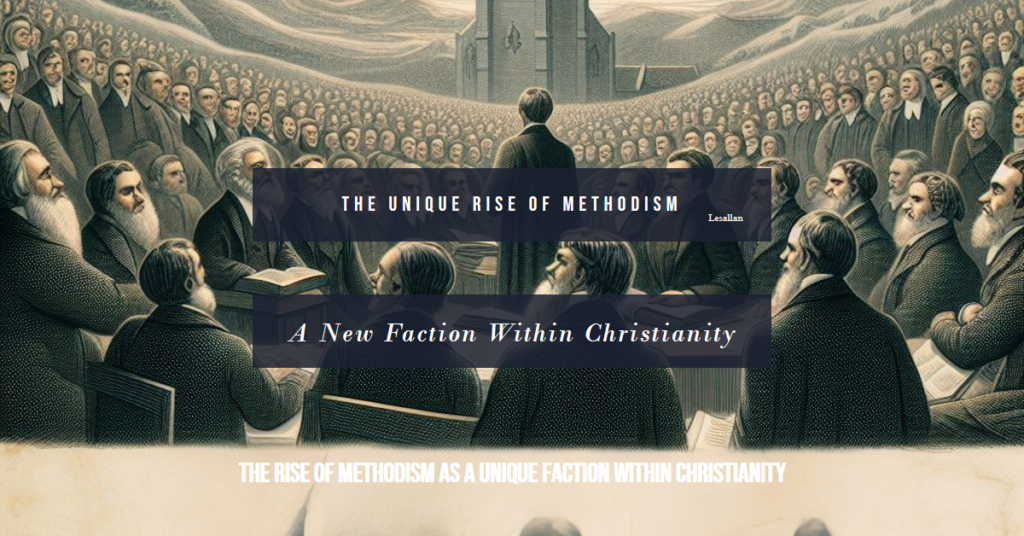Written by Lesallan – January 24, 2024

Methodism Distinguished
Ohio Christian University
THE3360 Theology of John Wesley (ONLSP24)
Dr. Steven Gerig
In the upcoming dialogue, I will share my thoughts on Collins’ (1999) chapter five regarding the rise of Methodism as a unique faction within Christianity. Specifically, I will delve into two noteworthy elements: the concept of complete sanctification and the effect of Methodism on society. Additionally, I aim to clarify why Methodism holds great significance in Christianity’s and the world’s historical narrative.
In his work published in 1999, Collins offers a thorough examination of the origins and impact of Methodism as both a religious and social movement. Of particular interest to me was the principle of entire sanctification, which Collins defines as “the condition of being purged of all sin and filled with genuine love for God and others” (Collins, 1999). This fundamental belief was rooted in Wesley’s interpretation of scripture, particularly 1 John 3:9, which states that “Whosoever is born of God doth not commit sin; for his seed remaineth in him: and he cannot sin, because he is born of God” (KJV). Wesley argued that this passage suggested that individuals could attain a state of perfection in this life, where they would be free from intentional wrongdoing and motivated by pure love. This viewpoint was not universally accepted among Christians, with Calvinists such as George Whitefield believing that humans were inherently sinful and could not achieve such a lofty level of spiritual purity. This disagreement separated Whitefield and Wesley and helped establish Methodism as a movement distinct from Calvinism.
One element that particularly caught my attention was the influence of Methodism on society, particularly for those who were impoverished and marginalized. Collins recounts how Wesley and his adherents spread the gospel to the masses, often gathering in public spaces and forming communities, classes, and groups for spiritual guidance and accountability. They also participated in various social initiatives, including ministering to prisoners, promoting education and healthcare, advocating for abolition, and championing women’s rights. According to Collins, Methodism served as “a positive force in society” (Collins, 1999), contributing to England’s ethical and spiritual revival in the 18th century.
Considering these factors, Methodism held a significant place in history as it presented a groundbreaking perspective on Christian purity and societal fairness. It defied the conventional beliefs surrounding human nature, redemption, and divine favor, motivating countless individuals to pursue a more profound connection with God and fellow citizens. Moreover, it highlighted how the gospel can revolutionize individuals and communities, irrespective of their standing in society or financial situation.
To summarize, the reading from Collins (1999) has provided me with a greater comprehension of the origins and importance of Methodism as a historical event. I am now knowledgeable about complete sanctification and its implications for Christian living and theology. Additionally, I have gained an understanding of Methodism’s societal influence and its contribution to shaping English culture and values. My newfound perspective has allowed me to acknowledge Methodism as a movement that has enriched Christianity and the world with its message of love and holiness.
Blessings,
Lesallan
References:
Collins, K. J. (1999). A Real Christian: The Life of John Wesley. Abingdon Press.


